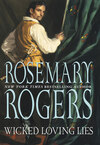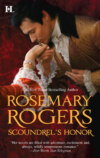Kitabı oku: «Wicked Loving Lies», sayfa 10
12
Unaware of all the intrigue swirling around her, Marisa tried to force some semblance of gaiety into her manner when at last they left the theater to drive to the magnificent hotel of the Russian ambassador. Far from being ended, the evening was only just beginning!
Josephine was silent, suffering from one of the migraines that made her husband so impatient with her of late, and Hortense was her usual quiet self. But the Countess Landrey seemed exhilarated as she teased her niece softly, “You seem very quiet, all of a sudden, my love. Surely one night in Paris cannot have left you bored? That dull performance at the theater tonight was only a prelude—I’ve heard that the Russians are lavish entertainers!”
Edmée’s high-strung mood drove Marisa to ask herself whether perhaps her aunt was expecting to meet her latest lover again here. Marisa drew in her breath sharply, in order to dispel the angry thoughts that flooded her mind. No, she couldn’t tell her aunt, not yet. And having seen her and learned of her true status, she hoped that Captain Challenger would not dare intrude his presence upon her again. If only she could forget and force herself to act as if nothing had ever happened between them! If only…
Her preoccupation with her own problems led Marisa, who was usually sensitive to the moods of those about her, to be impervious to the subtle difference in the atmosphere since they had left the theater. She was not to know that Napoleon had had a quarrel with his latest mistress, the actress in the play they had seen, and that when he had returned to their box in a rage, he had suddenly noticed her, as if for the first time.
It took her some time to realize that she was being singled out—and even that realization came only when the dark-visaged Lucien Bonaparte, the one brother-in-law whom Josephine disliked excessively, had drawn her away from under the very nose of the Russian prince who had paid her so much attention at Malmaison.
“The Russians are our allies for the moment, but there’s no reason why they should be allowed to get too friendly! Do you regret losing such a determined admirer, mademoiselle?”
Both relieved and puzzled at the same time, Marisa held herself stiffly in his arms, finding herself unable to either trust or like him. However, she shook her head as she answered mechanically, “No. As a matter of fact I don’t like the prince at all. He’s far too bold.”
“And you don’t like boldness in a man?”
While she sought for a light answer to his forward question, she wondered why he suddenly spoke to her so familiarly.
“I don’t like men who presume too much on the strength of a slight acquaintance. I suppose I am not worldly enough by your standards!”
He gave her a rather cynical smile. “Why, my standards are broad enough to embrace the whole world, mademoiselle ! However, my brother is surprisingly old-fashioned, and—shall we say conventional? Especially when it comes to women—of late, that is.”
‘What is he talking about?’ Marisa wondered, while at the same time she decided she did not blame her godmother for disliking this particular Bonaparte.
She was even more confused when after a few turns across the crowded ballroom floor, Lucien brought her to a halt before his brother, who had been engaged in a low-voiced conversation with Tsar Alexander.
Not knowing what to do or how to act, Marisa dropped into a low curtsy, hoping that the embarrassed flush that had spread across her face would go unnoticed. She kept her head bent, wishing that she did not have to rise, and it was Napoleon whose extended hand helped her erect again.
“And this is my charming little guest, the Señorita de Castellanos, who is goddaughter to my wife. You see, she is still young enough not to have forgotten how to blush!”
Finding herself presented to the tsar, Marisa’s tongue stumbled over her words, but he seemed flattered at her obvious confusion and gave her a gracious smile. She was all too conscious of Lucien Bonaparte’s dark, enigmatic presence at her side, and the fact that the eyes of all the gathering must be fixed on her at this moment. What did it all mean? Why had Lucien suddenly asked her to dance with him and then brought her here?
Napoleon Bonaparte’s blue, deep-set eyes seemed to hold her gaze against her will as he said softly in his accented French, “You are looking exceptionally lovely tonight, señorita.” Did she only imagine that his hand squeezed her nerveless fingers slightly before he released them? In his resplendent white full-dress uniform, laced with gold and decorated with glittering decorations, he seemed so imposing and quite frightening as well! It was hard to believe he was the same man who at Malmaison, would join the younger set in their games and had treated her as if he were a fond, but absentminded uncle. Why was he looking at her so strangely and consideringly tonight?
“You little innocent!” the countess of Landrey scolded Marisa some twenty minutes later when they had retired to one of the smaller salons leading out into the magnificent gardens. “Don’t you understand that he’s quite taken with you? Chérie, you are a success! And even more so than I had hoped. And now, you understand, you must be very discreet—never more than two dances with the same man. And do not flirt too obviously, he can be jealous once he’s fixed his interest on a particular woman. We must—”
“Stop, please! I do not understand.” Marisa pressed her fingers to her temples, staring at her aunt as if she had taken leave of her senses. She said, “What are you trying to say? That General Bonaparte—that he—but no, you are mistaken. You know he’s always been kind to me and my godmother….”
Edmée sighed, one small silk-sandaled foot tapping impatiently on the carpet. Why must Marisa be so deliberately obtuse? After all, for all her youth and rather touching naivete, the child had been through certain experiences that should have made a woman of her. And, as a result, she had made sure with the broths and bitter tisanes her niece had swallowed so obediently that there were to be no unpleasant reminders of the past. And she had hoped—but this was even more fortunate, if only Marisa could be made to see reason and to think practically.
She said, in a coaxing voice, “Haven’t you seen for yourself that Josephine is used to his occasional straying? She understands him—and besides, she’s had lovers of her own; there almost was a terrible scandal over that young Lieutenant Denis, not too many months ago! She won’t blame you, you may be sure of that. Just as long as you are discreet—and of course, you mustn’t give in too easily, either! All you have to do is blush the way you are doing now and open those innocent eyes very wide as if you don’t quite understand….”
Edmée went on talking quickly and excitedly, giving her bewildered niece no more chances to protest. It was high time the girl awakened to the realities of life as she herself had been forced to do at about the same age. Usually marriage came first and then lovers, discreetly taken. But in this case—why, there was talk that Bonaparte would soon make himself an emperor! And it was well known, besides, that he always provided generously for his mistresses, usually marrying them off to his generals or newly created nobility. Marisa must be made to see how foolish she was being, and what advantages there were to be had for all of them.
“Surely, darling, you don’t want to be packed off to the wilds of New Spain, to your papa who might be extremely angry with you? And this Pedro Arteaga from whom you ran away—he’d hardly want to marry you now, you know! Nor, I’m afraid and I hate to be so blunt, would any other Spaniard offer you marriage; you know how stuffy and conventional they are! You could be rich and independent—how I envy you! And when you do marry…. You know that I am speaking so sternly to you for your own good, don’t you, petite? I only want your happiness, as your dear maman would have wanted if she had lived. Come,” Edmée continued with an appealing smile, “don’t look so wan-faced! You are a woman now, and you must learn to act like one instead of a frightened child who can only think of running away and hiding. Pinch your cheeks, love, you need some color in them. And now we must return to the dancing and all your eager partners before he starts to wonder where you are!”
Unbelievable. As she followed her aunt, Marisa’s head was whirling with thoughts she did not want to face. She felt like a snared rabbit awaiting the hunter. She might not be worldly wise, but she was not stupid, and her innocence, if such a thing really existed, had been taken away from her by a steely-eyed corsair. She was just as helpless and just as much a pawn now as she had been then. And now that she had been catapulted into the limelight, there could be no escape for her unless…. She thought suddenly of Philip, and resolve stiffened her spine. If only Philip would understand and help her again! Somehow she must contrive to meet him.
The rest of the night passed in a kind of haze as Marisa danced and smiled and even managed to respond intelligently to the brilliant conversation that swirled about her. She knew now why she had suddenly become so popular and sought after, and she was all too aware of how often the first consul’s eyes rested on her, although he did not ask her to dance. Now that she understood, there was surely something she could do. But there was no point in worrying about it tonight.
Marisa was fortunately too tired to think by the time she had stumbled upstairs to her room, allowing her maid to undress her as if she had been a doll. She slept heavily and woke late to find that breakfast was to be served to her in bed since she had a busy afternoon ahead of her.
Through all of the fittings for the new gowns she must have, she tried to keep her mind a careful blank. There was to be a reception at the prince of Benevento’s palace that very evening, and everyone would be there. She must look her best.
Consoling her, flowers were delivered to her with a card from Philip, telling her how much he looked forward to seeing her again. She felt consoled by the flowers. But she felt frightened when she opened a flat box containing an exquisite shawl, all shimmering colors, accompanied only by the boldly scrawled signature, “Napoleon.”
“You see?” her aunt said triumphantly as she draped the shawl about Marisa’s stiff shoulders. “It wasn’t all a dream, my little Cinderella! And now you must hurry, for Monsieur Leroy is here already, and we must persuade him that your new ball gown positively has to be delivered this very evening!”
Marisa felt herself pushed this way and that, hardly realizing what was happening. Under any other circumstances she would have been beside herself with excitement, but now she was unusually quiet and docile, and the designer, who had already heard the latest gossip, wondered rather contemptuously what Bonaparte had found so intriguing about this silent slip of a girl who had only her great golden eyes and her hair to commend her. Tiens! She was so thin! And one wondered whether she had any conversation to offer. He decided that she must be dressed in white—a simple muslin with, perhaps, some artful Grecian drapery to hide the lack of curves, and a small ruff, which he had made so fashionable, around her neck, to hide her collarbones and heighten the illusion of a child playing at being a woman. Or was it really an illusion?
The high, tightly cut bodice of her gown was embroidered with tiny seed pearls, and a rope of pearls bound her hair, its dark gold ringlets escaping to lie riotously against her forehead and temples.
“I shall call this creation ‘Andromeda,”’ Leroy had said proudly, and Marisa wondered if she were meant to recreate the ancient Greek legend of the maiden sacrifice, for that was exactly how she felt tonight.
Josephine’s dark eyes rested on her sadly, but her manner was just as affectionate as it had always been. Was it really true that she didn’t mind? To make his gift to Marisa less obvious, Napoleon had also presented gifts to his wife and stepdaughter: a ruby necklace for Josephine and a pretty ivory fan to Hortense. He was nowhere in evidence when they left for the reception; affairs of state kept him busy, but he would arrive later as was his usual custom.
Marisa’s hands were cold in spite of her silk gloves. She almost dreaded the thought of appearing in public again, knowing how people would be speculating about her.
Almost unconsciously, she squared her shoulders. There had to be a way out of her present dilemma, and she would find it. Philip would help her—she felt it. And in the meantime, she must pretend to her aunt that she accepted everything she had been told and that she was quite resigned.
Had Marisa but known it, Edmée was not even thinking about her niece just then. She had other things to think about. In the darkness of the carriage, Edmée bit her full lower lip, feeling the blood start to course faster in her veins. Tonight—after the reception—but how was she going to manage it? Dominic had told her that he would somehow contrive everything; he was so masterful and so—so arrogantly sure of himself! She ought to have refused him, but there was something about him…. Even the lightest brush of his fingers on her bare arm made her weak when he touched her. He was an American savage—the kind of man who had no time for whispered flattery and flirtation, preferring to seize what he wanted by force if he had to. It had been a long time since any man had excited her so, and she felt like a fluttering moth drawn to the flame of a candle, knowing the danger but unable to resist it. If he got her alone, there would be no opportunity allowed her for coyness or holding back—she was sure of it. He was capable of raping her without a qualm, of tearing the clothes off her body if she resisted him.
Edmée’s tongue moistened her lips as she tried to suppress a shudder of pleasure mixed with fear. But could she resist? Did she want to? He was a primitive jungle animal among the civilized men she was accustomed to, and like any woman she wondered if perhaps she could be the one to tame him. Her heart was still beating quickly as their carriage stopped at last before the imposing marble steps that led up to Talleyrand’s palace.
Thousands of candles illuminated the crystal and silver and gold surroundings and enhanced the equally brilliant gathering that thronged the many rooms of the palace. Jeweled decorations glittered on almost every male jacket, while the women sought to outshine each other with their magnificent ball gowns and sparkling gems.
Marisa was dazzled. To think that she was here and actually a part of such a grand assembly! There were diplomats and noblemen from all over the world; she had never heard so many foreign languages spoken under one roof. The walls were hung with silk in the colors of the Republic and interspersed with garlands of freshly cut flowers whose cloying scent mingled with the odors of food and the perfume worn by the women. It was a warm night and an enormous pavilion had been set up in the magnificent walled garden for dancing. The musicians were playing already. The crush was so great that Marisa began to wonder despairingly if she would ever catch sight of Philip. In the meantime Edmée kept her close to her side even though her eyes too seemed to wander sharply from one face to another.
They had passed through the reception line at last. As honored guests they were escorted by Talleyrand himself, dressed in his usual somber black, to a group of gilt chairs placed a little apart from the others on the terrace.
Immediately Josephine and Edmée were surrounded by friends and admirers, leaving Marisa a little space to look around. She saw a few faces that were familiar to her, and she bowed and smiled politely. But heavens, how conspicuous she felt! ‘It’s almost as if we were royalty,’ she thought wryly. At least Philip surely could not fail to notice her.
She was so occupied studying the crowd that she could not help the start she gave when a soft voice addressed her.
“Ah, mademoiselle, what good fortune to see you here. You look charming, as usual, and I’m your servant.”
Joseph Fouché, duke of Otranto, bowed over her unwillingly extended hand, his cold lips brushing it lightly.
Fouché. She did not, could not like him, Marisa had already decided. He reminded her of an ugly black bird of prey, hovering lazily before it struck. Always present—watching—his cold eyes hooded and unreadable. And she remembered that he was one of the original revolutionaries, a friend of Robespierre and one of those who had voted to guillotine all the “aristos” who could be rounded up. Why did she have the impression that he was always watching her? Even when he paid her meaningless compliments his cold eyes remained remote, almost assessing.
‘The Terror is over—and in any case there’s no reason why I should fear him,’ Marisa reminded herself.
Marisa wished he would leave, but he surprised and angered her by lingering, his urbane voice murmuring polite civilities all the while. She must try to remember that he was here tonight as the duke of Otranto and not in his capacity as chief of police. What a ridiculous thought; what did she have to feel guilty about? Funny—now she almost found herself wishing that Napoleon would arrive and “rescue” her!
“I wonder, mademoiselle, if I might have the honor of taking you in to supper? If you have not already promised it to someone else, that is.”
Taken aback, she could not find anything to say. Looking at her aunt for support she found that Edmée’s attention was elsewhere. Her heart sinking, Marisa saw a satisfied smile cross Fouché’s thin lips as he drew up a chair to seat himself beside her.
“I am excessively flattered and grateful that you should be kind enough to spare me a little of your time. Do you know, mademoiselle, that you are a fascinating enigma? I am sure I cannot be the only admirer to be curious about you! Yes, I must confess that I am intrigued….”
Growing hot and cold by turns, Marisa was forced to listen as his soft voice went on and on, his eyes holding her pinned in place like a helpless butterfly against a wall.
13
A series of shocks, delivered one after the other, had rendered Marisa almost numb by the time they sat down to a late supper.
First there had been Fouché with his probing, relentless questions that seemed to want to rip away all the veils she had thrown up between herself and the past. He had acted as if she were a criminal with something to hide!
“Come, mademoiselle, I know how painful it must be for you to recall certain unpleasant happenings, but I assure you that I shall be discreet. Surely you realize it’s better this way, under the cover of a gathering such as this? Do continue to smile, I beg you. I am merely fulfilling my duty and attempting to spare you the embarrassment of formal questioning in my office. Please trust me. I am a father, and I understand something of your scruples.”
He wanted to know how she had arrived in France, when and with whom. And her relationship with Philip—how she had met him and how well did they know each other?
Angrily she tried to evade him, but he had merely smiled.
“If you are sensible, mademoiselle, you will tell me everything. Be assured it will not go further.”
It sounded as if he were threatening her—his manner fatherly and bullying by turns. And then, like a fisherman content to play out his line for the sport of reeling in a spent quarry afterwards, he let her go with the promise that he would speak to her later, after she had had time to think.
Soon afterwards she saw Philip making his way to her side through the crowd. An unwonted frown creased his forehead. She was reminded suddenly and forcibly of the fact that Philip was English. Dear God, did Fouché think she was a spy? Part of some royalist plot?
This evening even Philip seemed changed in some way, his manner almost abrupt. “Marisa, I have to speak to you. Forgive me, but if there’s some chance that we could converse alone—”
Marisa forced a smile as she tried to warn Philip with her eyes. “Later, perhaps. I hope you will ask me to dance.”
“It seems as if you are always surrounded by chaperones now—and admirers!” His voice sounded almost bitter, and she longed to be able to put her hand in his and run away with him, away from all the gossip and the speculation and the staring eyes that watched her, she was sure, even now.
“Philip—” she began pleadingly. She noticed how his face seemed to close up, becoming a polite, handsome mask as her aunt came fluttering up, a teasing smile on her full red lips.
“Monsieur Sinclair! But how nice to see you again. Did your friends come with you this evening? I have been wishing to meet Lady Marlowe again ever since I learned she was in Paris with her dear little Arabella. Marisa, you must meet her—such a sweet, typical young English lady, and you must be almost at the same age, too. You must be introduced, and especially if you are to go back to England with me. Lady Marlowe knows all the patronesses of Almacks, isn’t that so, monsieur?”
“Lady Marlowe knows everybody,” Philip said in a low, controlled tone as he bowed over Edmée’s white fingers. “I will be sure to tell her that you were asking about her, of course.”
“Please do!” Edmée responded sweetly, sinking into the vacant chair by Marisa’s side; and after a few murmured polite remarks Philip was forced to leave.
“How could you!” Marisa burst out in a low, suppressed voice as soon as he was out of earshot. Her aunt raised one arched brow.
“How could I—what? Chérie, you ought to be grateful that I rescued you from being far too indiscreet. It’s an open secret that his engagement to Arabella Marlowe will be announced as soon as they return to London; and yet, the look on your face as you gazed up at him! You really must learn to mask your feelings, darling child, for your own sake!”
Too angry to control herself Marisa burst out, “And for whose sake, I wonder, has the odious duke of Otranto been plaguing me with questions? While you were occupied with your friends he hardly left my side; he wants to know everything about my past, every sordid detail! What am I to tell him?”
“Oh—Fouché!” Edmée gave a shrug, but her brilliant eyes seemed to avoid her niece’s for a moment. “It’s his business to know everything about everybody, but he’s closemouthed, at least. And better to have as a friend than an enemy, believe me. Why don’t you tell him what he wants to know, and then he’ll leave you alone! Really, my pet, there’s no point in being so mysterious, although I do understand how you must feel. Tell him the truth and then forget about it. He can’t hurt you, not now.”
At that moment the whole gathering seemed galvanized to attention as Napoleon Bonaparte, surrounded by his aides, made his late entrance.
It was almost as if he were an emperor already. There was a sudden hush; the men bowed, and the women curtsied low. He walked across the room with Talleyrand at his side, his pale-complexioned face remote and unsmiling unless he recognized someone he knew, and then he would stop to speak for a few moments.
He was dressed, as usual, in his general’s uniform, and in spite of his slight stature there was something dynamic and powerful about him. Even Marisa, as overwrought as she was, could not help noticing it. He approached their small group—and, oh, God, why did Josephine happen to be dancing at that moment with a young Polish officer?
Marisa had dropped into a curtsy with the others, but suddenly she felt a hand on her wrist, drawing her upward. Napoleon said, “Come—let us dance, señorita. It’s a pleasure I have long looked forward to.”
There was nothing to do but to obey what amounted to a royal command even though Marisa realized, with a sinking heart, what this unprecedented honor meant. Like any good general, Napoleon never wasted his time, believing in making straight for his objective. How in the world was she to deny him?
They waltzed, and he was surprisingly light on his feet. She noticed that and was relieved that he did not try to engage her in conversation. Marisa tried to keep her mind on the music but could not. ‘He is only being kind—no more than that. They cannot force me into being his mistress. With all the women of Paris, of all France for that matter, at his feet, he could not possibly want me! It’s only a game, to make Josephine jealous….’
They circled the floor once, twice, and then he led her back to the gilt chairs. He smiled and there was a searching look in his deep blue eyes.
“You dance very well, little Marisa. And I enjoyed the fact that you do not chatter while you dance.”
Bowing stiffly, he left her and went to Josephine; but by then there was not a single person in the whole brilliant assembly who had not noticed her. The whispers of those who had attended the Russian ambassador’s reception the previous night had swelled into outright gossip by now.
“They say, my dear, that he’s actually installed her under his very roof! And passes her off as his poor wife’s goddaughter.”
“Who is she? A Spanish last name, I’ve heard, but is it really true her mother was French? Where does she come from?”
“I cannot remember that the Countess Landrey ever mentioned a niece before,” Lady Marlowe sniffed. “And I really cannot say that the girl has much to recommend her! I noticed her at the theater last night—such a very unsuitable gown for a child her age!” She lowered her voice so that her daughter could not hear. Tapping the British minister’s arm with her folded fan, she said, “Fast! But then what can one expect…”
Whitworth, who had noticed young Sinclair go up to speak to the same young woman earlier, merely frowned and held his peace. Strange that he hadn’t mentioned being acquainted in those circles. And yet, understandably, he’d had other things on his mind last night. While Whitworth pretended to pay polite attention to Lady Marlowe’s chatter, his rather protuberant eyes were searching the room for his American counterpart. Livingston was a civilized fellow, for all that he was an American. Perhaps, if he were approached in a casual, roundabout fashion he might shed some light on the mystery that had Philip Sinclair so perturbed. A damnably awkward thing, if Sinclair were right and this American privateer with the improbable name was really an English viscount, long presumed dead. Royse’s heir? It did not seem possible! He would have spoken to Talleyrand, but it really wasn’t advisable to let that wily statesman suspect the reasons for his sudden interest in an obscure American captain. Being a diplomat was by no means easy when one had to cope with so many sly intrigues! And speaking of intrigues—where the devil was Sinclair? High time he asked Arabella Marlowe to dance.
Philip Sinclair, rendered bold by the unusual amounts of wine he had consumed, and in despair by what he had just witnessed, had just bowed before a still-flushed Marisa, asking her to dance with him. At this point he didn’t care if Arabella, her formidable mother, or even Napoleon himself were watching. Damn it, she didn’t belong here! She was too innocent to realize what was happening—what people were whispering about her! It was all the fault of that accursed aunt of hers, a married woman notorious for her many and varied lovers. He had almost forgotten his original purpose in coming here and his intention to ask her questions.
Everyone else was dancing, even the pregnant Hortense, and Marisa had begun to feel herself isolated when thankfully, Philip appeared out of nowhere. She had just glimpsed the duke of Otranto begin to make his way towards her, and her aunt Edmée was nowhere in sight, so it was with an unfeigned exclamation of gladness that she smiled up at Philip and took his hand without hesitation. He had sensed her distress and had come to her. Here at last was someone she could trust!
Unfortunately, the musicians had just begun to play a quadrille, and the dancers formed sets and faced each other, giving them hardly any opportunity to talk privately.
“I must speak to you!” Philip said again, doggedly, and Marisa gave him a worried inclination of her head. The dance led them apart and then together again, and in response to the pleading in his eyes she murmured breathlessly, “Soon—I shall contrive to be very tired and in need of a drink and some fresh air. On the terrace outside?”
“I’ll look for you there. I’ll wait, if I have to.”
The urgency in his voice and the almost desperate pleading in his eyes made Marisa’s pulses begin to race. Philip was in love with her! He was jealous, of course, but tonight he meant to ask her to elope with him, and she would—she would!
What did it matter if he had little money of his own? They would be happy. Perhaps her papa would relent and give her a dowry, and Philip would go to New Spain with her, and there would be a touching reconciliation with papa, and everything would end happily. They would make it so!
Lost in her suddenly happy visions of the future, Marisa did not notice that her manner had regained the sparkle and vivacity it had lacked earlier, and that she was actually smiling in a dreamy fashion. But there were others who noticed—and reacted according to their respective natures.
Joseph Fouché grinned in an ugly, narrow-lipped way, and the prince of Benevento raised an eyebrow in mock dismay, even while his cunning mind raced. Napoleon’s face grew cold and forbidding, and Edmée, stepping in breathless and flushed from the coolness of the gardens, gave a smothered exclamation of annoyance.
Ücretsiz ön izlemeyi tamamladınız.

















